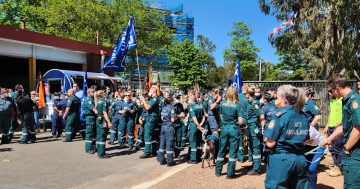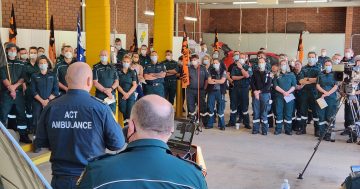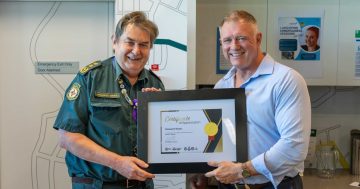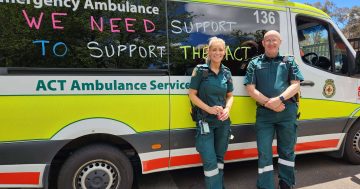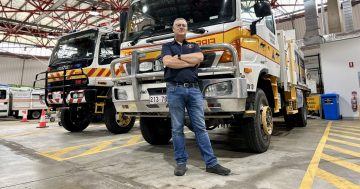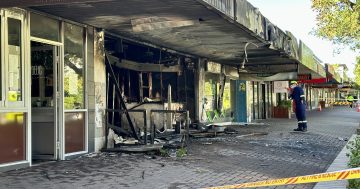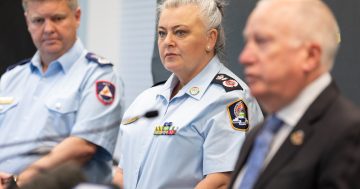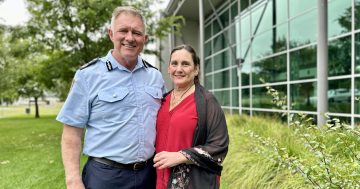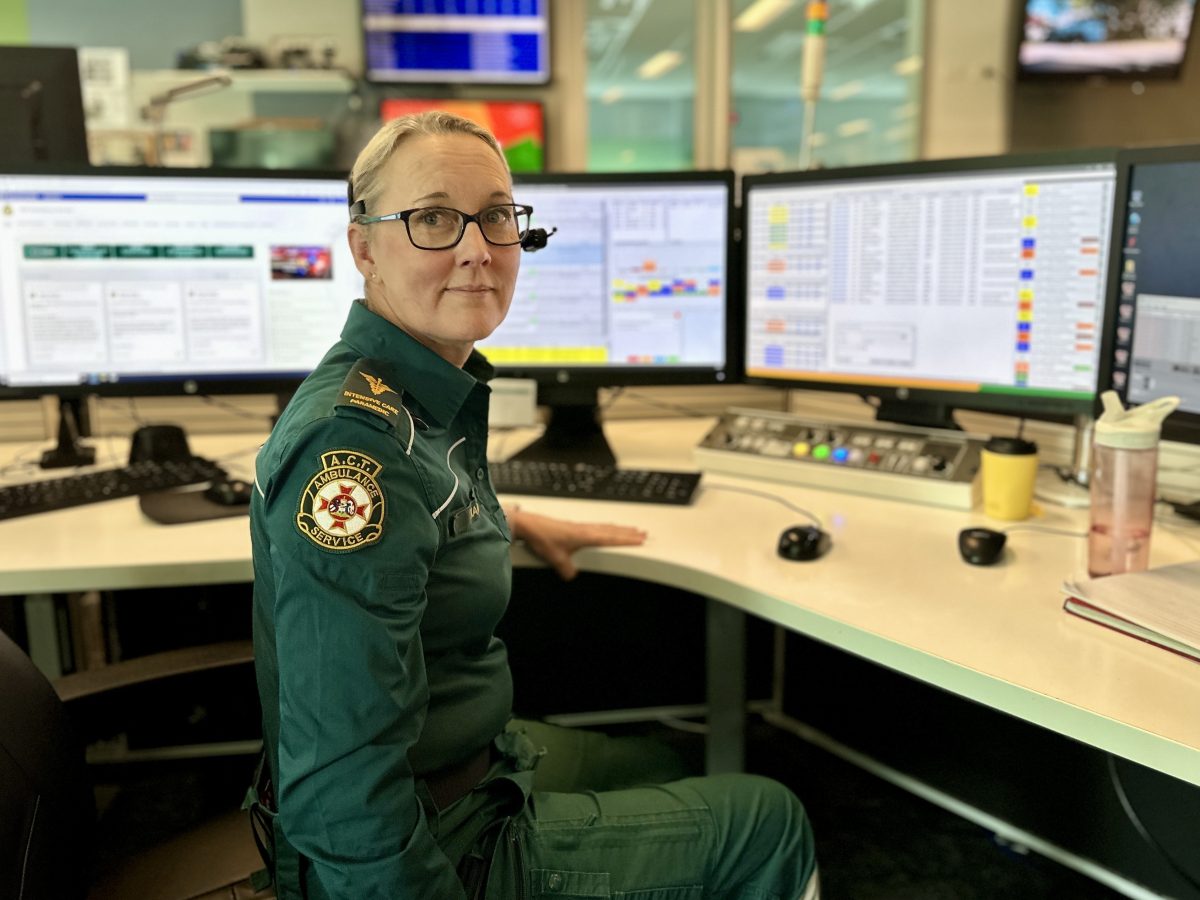
ACT Ambulance Service paramedic Karen Clarke works in the Emergency Communications Centre. Photo: James Coleman.
Have you ever wondered what would happen if – heaven forbid – you had to phone triple zero?
There’s a chance Karen Clarke will be on the other end of the call. She works – headset on and with three busy monitors in front of her – in the Emergency Communications Centre, a relatively small office based in the Emergency Services Agency (ESA) building near the airport.
“Our call-takers, who are very specifically trained, take your call and talk directly with you, asking a lot of very particular questions,” she explains.
“While that’s happening, in the background, a dispatch officer and myself will be overseeing the information we get from the call and discussing our resources – how we can get the right help for that person and in the right amount of time.”
All up, there are at least three people involved in any emergency call, but up to five the more complicated it becomes. Each call typically takes only a few minutes, although, depending on the circumstances, Karen will stay on the line with the caller until the ambulance arrives.
Each team member deals with hundreds of calls every day, with no real, predictable ups and downs.
“Things can change very quickly for us with no real indication of why, or no real provoking factors,” Karen says.
“In a matter of minutes, it can go from common or manageable to completely chaotic, and we just have to work through what’s presented.”
As anyone with a child who happened to get a hold of your phone would know, not all of the calls are genuine, either.
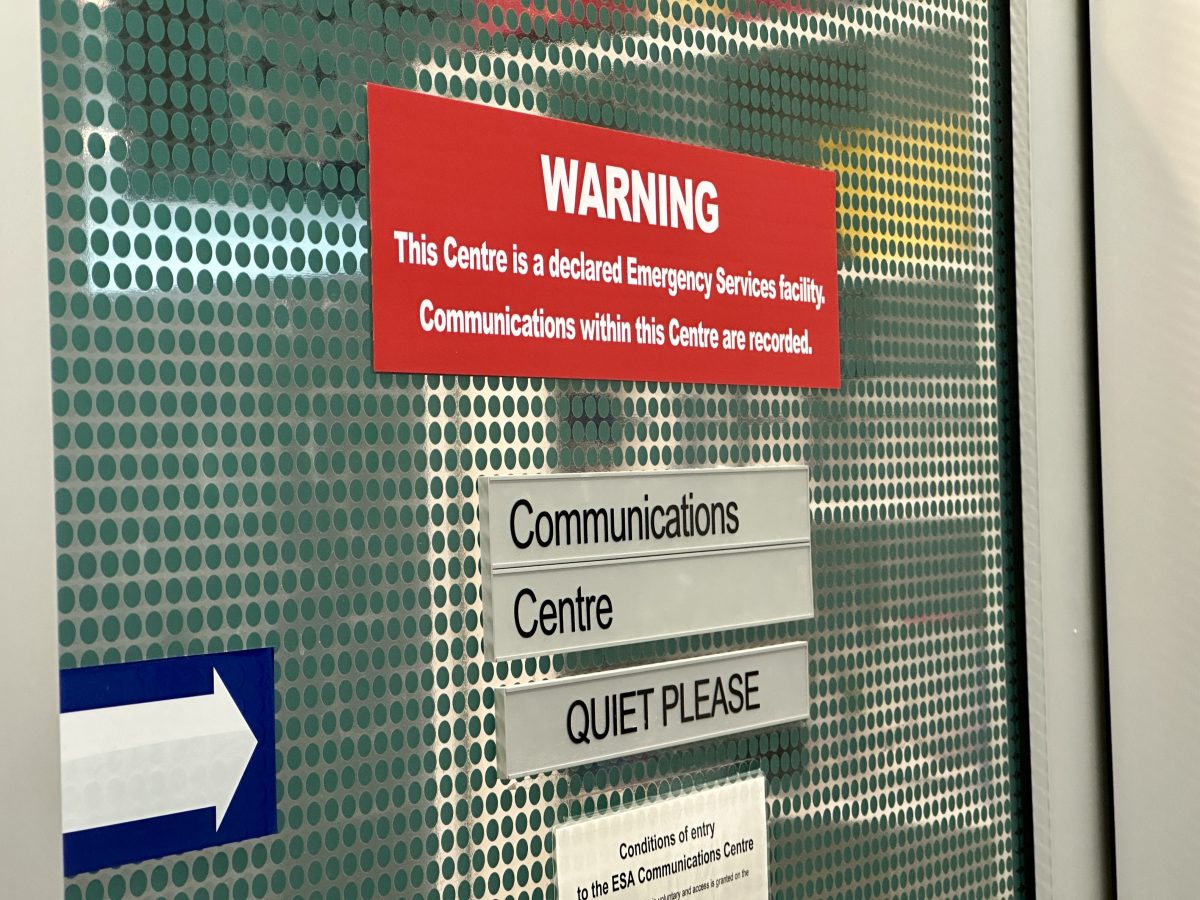
The door to the office where it all happens. Photo: James Coleman.
“We do have mistakes, hoaxes and accidental calls coming through, but they’re fairly easy to identify early and it’s not too big a deal for us,” Karen says.
A paramedic of 25-plus years, Karen is drawing attention to the role for International Paramedics Day, held annually on 8 July as the anniversary of the birth of Dominique Jean Larrey, a French military doctor who became Napoleon Bonaparte’s chief surgeon, and the man charged with being the ”father of modern-day ambulance services”.
Karen began as a student of environmental science and then a veterinary nurse in Sydney before a friend from the NSW Ambulance Service got her thinking about a different kind of medicine.
Back then, unlike now, paramedicine wasn’t a university degree. A lot of it was on-the-job training.
“The paramedics that are coming out now have a lot of knowledge to back up the experience we can then give them by training on the road,” Karen says.
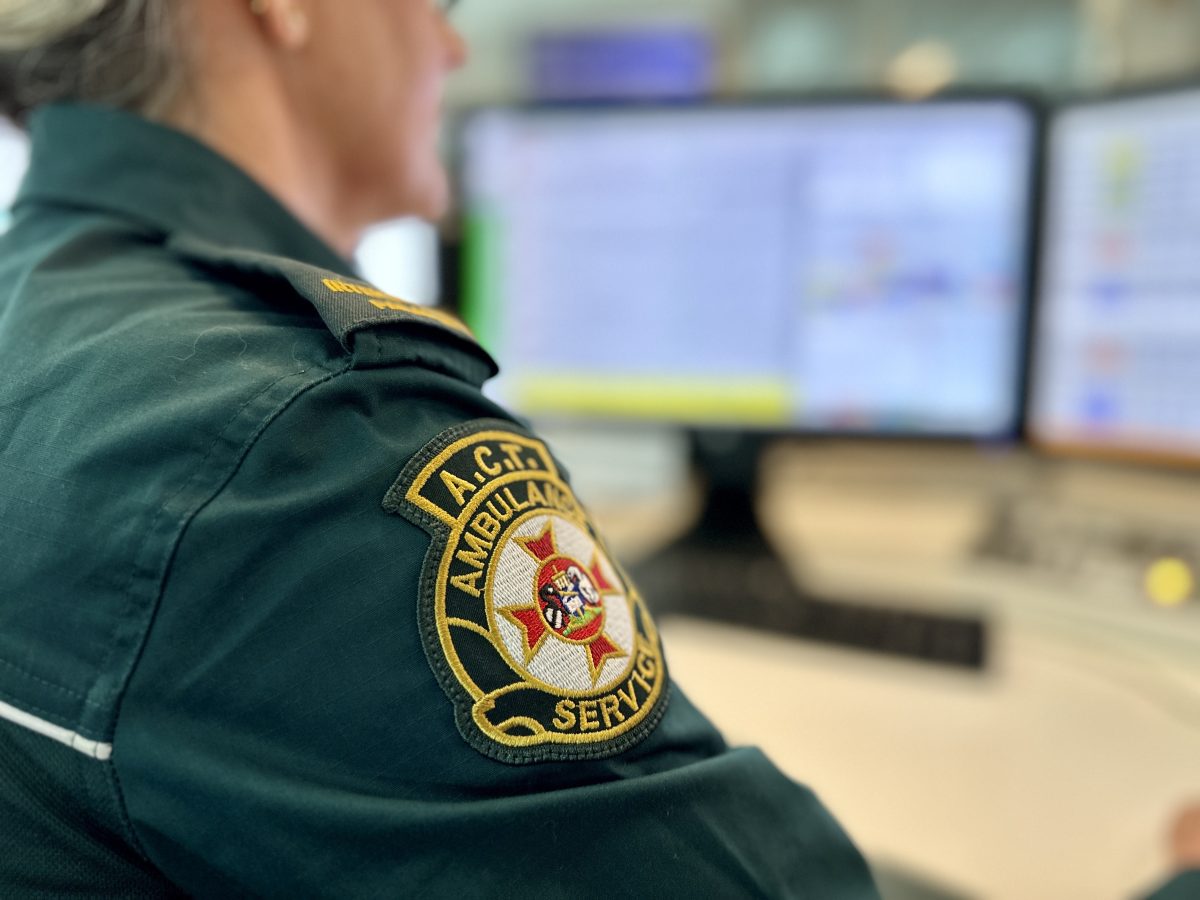
Karen started as a veterinary nurse in Sydney before switching to a different kind of medicine. Photo: James Coleman.
She remembers her first shift at Summer Hill station in Sydney as “very overwhelming for a rookie”.
“We start pretty much as a standard ambo, on the road, doing your everyday ambulance work, and it does include night shift,” she says.
More than 100 of the ACT’s paramedics, backed by the Transport Workers’ Union (TWU), mounted protests in 2022 and scribbled messages on their vans, calling for a better rostering system and improved working conditions.
Karen complained of working 14-hour shifts back-to-back, with only a 10-hour break.
She agrees the working days were intense: “We didn’t do a lot else apart from turn up for work, go home to sleep and then come back to work.”
In response, the Emergency Services Agency (ESA) recently moved to a new system whereby shifts are capped at 10 to 12 hours over four days. It’s also added 11 paramedic crews over the 24-hour rostering period.
As part of the wider health system, Karen says ambulance services across the country remain under pressure from a lack of funding and short-staffing, but that while “we’re still working out a few niggly things” with the new roster, “overall, the paramedics appreciate the changes”.
“I mean, all night shifts are hard, but reducing them makes it a lot easier to recover from.”
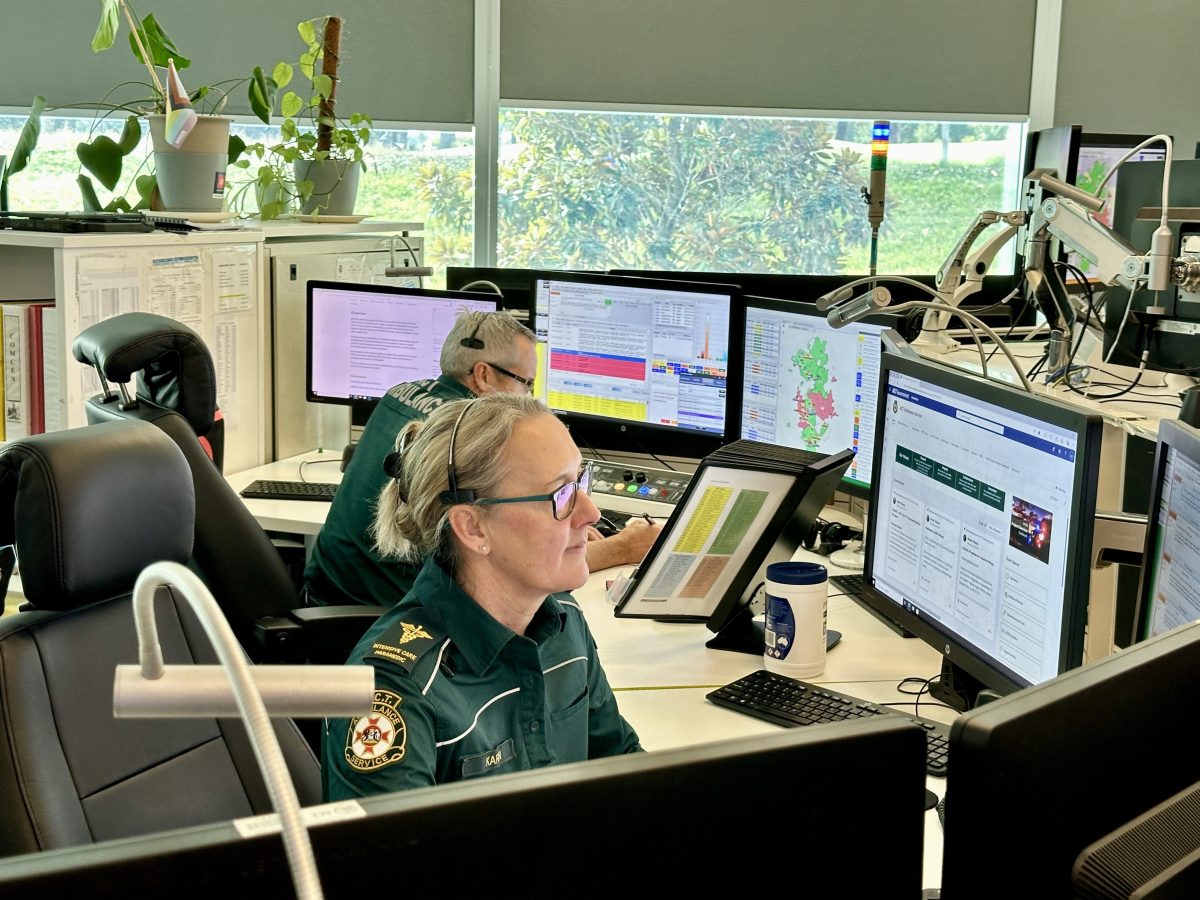
Karen says it’s important to have a way of unwinding from the job. Photo: James Coleman.
Karen enjoys unwinding with her horse – “and of course, my two children” – when she can, and stresses the importance of a healthy work-life balance.
“You need to come up with a strategy of managing the work stress and being able to leave it behind and get on with your own life, particularly if you want to have some longevity in this job,” she says.
“We do experience a lot of burnout.”
Overall, she’s “proud to be a paramedic and to make a difference”.
“I’ve been here for years. I’m part of the furniture. And it’s hard to think of doing anything else.”












